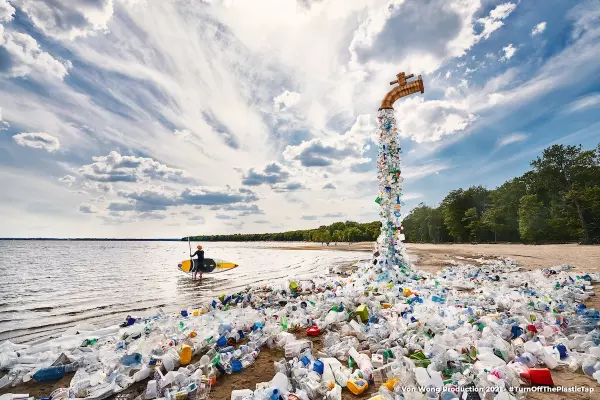Pollution occurs when harmful things, like chemicals and waste, get into the air we breathe, the water we drink, and the environment around us. And we as consumers play a major role in creating pollution. By some estimates, household consumption is responsible for the majority of
air and water pollution in the world.
ConsumerNotice.org has created a guide called: “A Consumer’s Guide to Reducing Pollution”
This guide has been created with the purpose of providing a wider perspective on daily life
activities that can contribute to the issue of pollution.
Activities such as using harsh chemicals for cleaning, using single-use plastic products, and
improperly disposing of waste are a big part of the problem. For example, when we use
chemical cleaners to clean our homes, the chemicals can end up in the air and water, polluting
the environment. Similarly, when we use single-use plastic products, they often end up in
landfills or oceans, where they can take hundreds of years to decompose and harm wildlife.
The car we drive
Carbon monoxide emissions play a role in the creation of greenhouse gases, such as carbon
dioxide and ozone, that warm the atmosphere. And breathing in higher levels of carbon
monoxide decreases the amount of oxygen that reaches a person’s organs.
But the way we drive and the vehicle we choose can cut back on not only emissions but also
how much money we spend on gas.
Driving more efficiently or driving less can reduce the amount of air pollution you put in the air.
Scheduling your multiple home deliveries so they arrive on the same day can reduce pollution
from delivery trucks. And keeping your car in tune and its tires properly inflated will improve your
gas mileage while reducing the pollution it puts out.
Household products
Household products can contribute to pollution in various ways. Many common household
products contain chemicals that can be harmful to the environment and human health. When
these products are used or disposed of improperly, they can end up in the air, water, or soil, and
contribute to pollution.
Energy use
Energy use and pollution are closely linked. Most of the energy we use comes from burning
fossil fuels like coal, oil, and gas, which releases harmful pollutants into the air, water, and soil.
These pollutants can cause a range of negative effects on human health and the environment,
such as respiratory problems, acid rain, and climate change.
Landfill waste
Landfill waste is a major source of pollution. When we dispose of waste in landfills, it can
release harmful pollutants into the air. As waste decomposes, it produces methane, a potent
greenhouse gas that contributes to climate change. Landfills can also contaminate groundwater
and nearby waterways, leading to water pollution and harming aquatic life.
Reducing pollution in our daily life activities is crucial for protecting the environment and
promoting a sustainable future, and the responsibility for pollution certainly does not just lie with
us as consumers. But also in large companies that manufacture or provide the services we
consume. Our way of contributing to reducing pollution apart from focusing our habits on more
eco-friendly practices can be also by choosing companies, products, and services with
environmentally friendly practices.
By making these changes in our daily lives, we can help reduce pollution and protect the
environment. It is important to remember that every small action can make a difference and
collectively, our efforts can lead to a cleaner and healthier planet.
https://www.consumernotice.org/environmental/pollution-reduction/
Source
Image attribution Tags: air pollution, and light pollution, noise pollution, responding to pollution, soil pollution, water pollution


